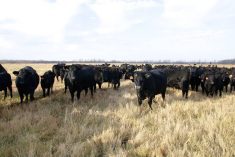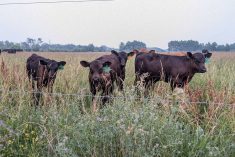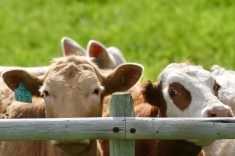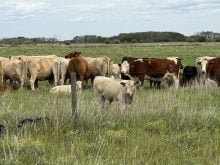BROOKS, Alta. — A proposed fee on water licenses likely won’t survive if farmers’ messages from Alberta’s irrigation country are taken seriously by government.
That’s the opinion of Jake Thiessen, assistant deputy minister responsible for water within the department of environmental protection.
In 1993 the average cost of irrigation water for the farmer was $11.47 per acre. The government’s proposal would increase that by $3.15.
The idea of charging a user fee of 40 cents per acre foot on each water licence has created such a clamor that the department will have to look elsewhere for revenue, he said.
Read Also

Mixed results on new African swine fever vaccine
The new African swine fever vaccine still has issues, but also gave researchers insight into how virus strain impacts protection against the deadly pig disease.
Cut back 30 percent
The proposal came out of environmental protection’s three-year business plan as one of several options to raise money and cut costs. This department will cut back about 30 percent in three years as part of the government’s plan to reduce the provincial deficit by 1997, said Thiessen.
“The minister (Brian Evans) said there would be no implementation of a water tax this year,” he said.
The department has proposed other fees like stumpage charges and selling firewood to campers in provincial parks but none has created such an outcry, said Thiessen.
An MLA committee travelling to the affected areas was told bluntly by a large crowd in Brooks that the user fee is a no-go. The committee also met with 13 irrigation districts and heard the same message.
The fee would affect everyone who uses water. In Alberta, water is owned by the province, which issues licenses based on consumption. For example, the Eastern Irrigation District based in Brooks has a license allowing it to take 762,000 acre feet per year. An acre foot is the amount of water needed to cover one acre with one foot of water.
Targets rural more than urban users
Farmer Rudy Peltzer of Brooks told the committee the water tax idea is flawed because irrigators would feel the charge more than urban users.
An irrigation farmer for more than 50 years, Peltzer agreed budget cuts are overdue throughout the province, but he’s not sure farmers can carry a heavier load.
“There isn’t a creature on the planet that doesn’t use water. The farmer isn’t the only one who uses the water. It’s the problem with your tax. You can’t apply it uniformly to everyone who uses water,” Peltzer said.
Dennis Peterson of Rolling Hills said this tax could add another $480 to his water bill. However, for the city of Calgary which also holds a water license, it’s estimated the fee would add 25 cents a month to the average utility bill.
Bob Holt, another Rolling Hills farmer, drew applause when he asked if the government plans to tax the wind and sun as well.
“We’re trying to make a living down here and there’s not much left to tax,” he said.















